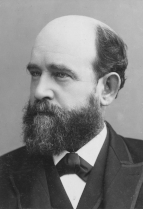Léo Klag (1920-2018), longtime student of the economic philosophy of Henry George, passed away in his ninety-eighth year this past March. I first met Léo in the 1980s when he was on the governing board, along with Ben Sevack and the late Harry Payne, of the Canadian Research Committee on Taxation (CRCT), the predecessor to Earthsharing Canada. The job of Research Director for the CRCT was vacant. As a young academic I was keen on doing work in the areas of tax reform and normative economics. Fortunately, I got the position and thus started a life-long association with Léo, Ben, and Harry of the CRCT, who were my always supportive fellow Georgists in Montréal.
It is only recently, after I read Léo’s, Why Me, an extraordinarily moving account of his escape from the Holocaust and the tragedy of his family, that I realized the importance to him of Henry George and Albert Schweitzer. These were the two authors and world renown figures that we talked about the most when we got together. Henry George was no phantasmagoric utopian, but his sovereign remedy, as laid out in Progress and Poverty, did hold the promise of an egalitarian and just economics that would bind humanity together rather than divide and foment conflict. For Léo, Albert Schweitzer’s ethics of reverence for life and his devotion to others through his medical humanitarianism in Africa, was an ideal of a different order that complemented perfectly the reformist economics of George’s philosophy.
Ben Sevack, my CRCT mentor in Montreal, and Léo’s daughter Malvina brought to my attention Why Me, published by the Azrieli Foundation as a part of its Sustaining Memories Project. The mémoire recounts Léo’s early days in Berlin in the 1920s and 1930s before Hitler’s rise to power. The simple, but rivetting narrative, takes us through the horrors of Kristallnacht, his separation from parents and brother, who perished in the Holocaust, his escape to the Kitchener Camp in England, immigration to and internment in Canada as a POW (believe it or not) at Île aux Noix, and early post war years in Montréal. There is a Postscript and a pictorial archive at the end of the mémoire. Why Me brims over with thanks to those who helped Léo when he had lost all hope. It is from the Postscript, though, that we get a glimpse of his profound sadness over the arbitrary loss of life that seems to be the fate of humanity. Knowing Léo, as I was privileged to have known him, and knowing his deep empathy and benevolence towards all human beings, I am sure he passed on in the optimistic and enduring spirit of his favourite philosophers, Henry George and Albert Schweitzer.
Francis K. Peddle
Secretary-Treasurer
Henry George Foundation of Canada
Co-Editor
The Annotated Works of Henry George
Ottawa
May 24, 2018

